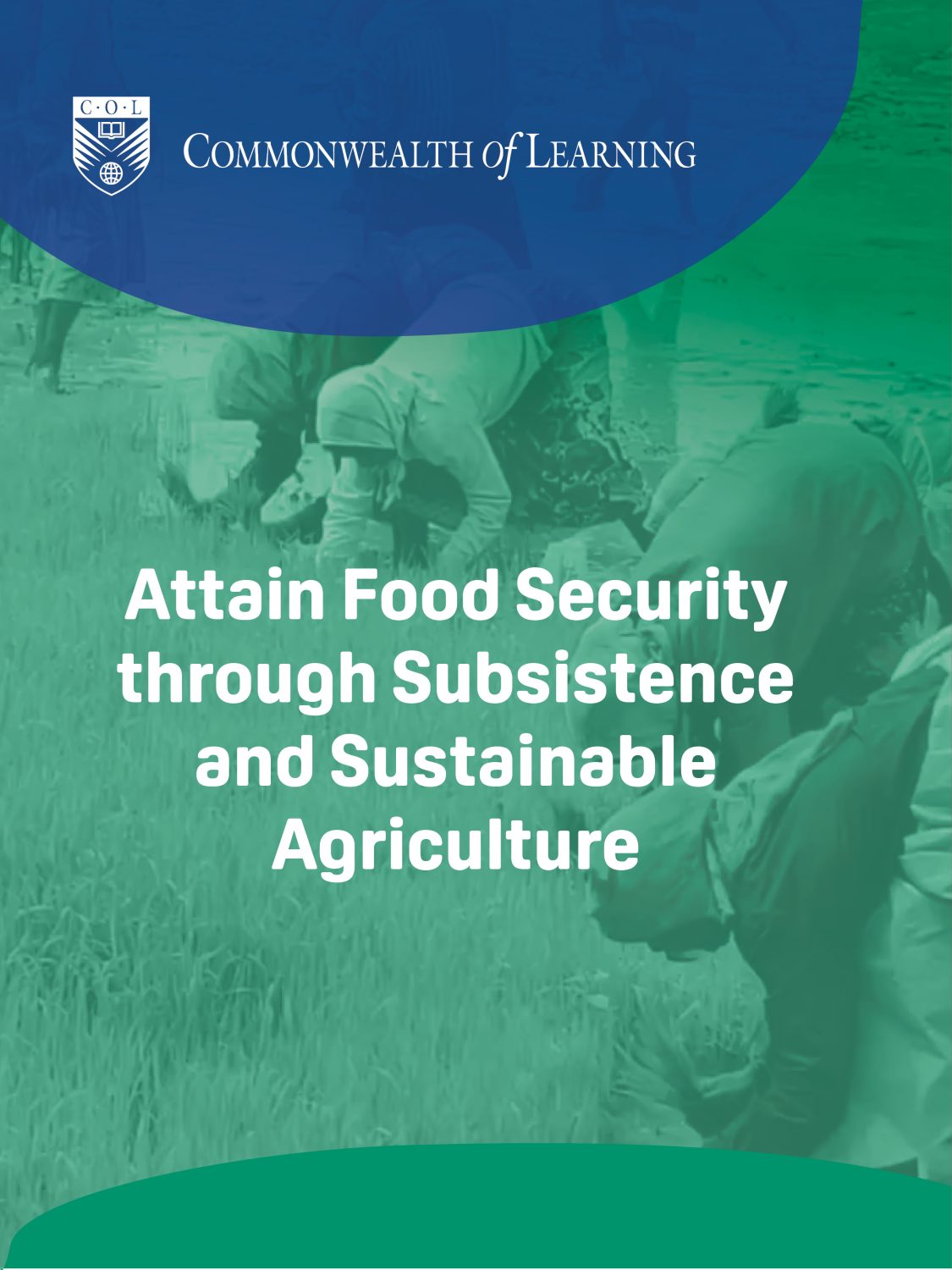Attain Food Security through Subsistence and Sustainable Agriculture
Mitigating Climate Change Impact and Achieving Sustainable Livelihoods

This course looks at some of the causes of climate change and its effects on food security and food justice in particular. It discusses food and nutrition in relation to the geography of community spaces and presents various food insecurity scenarios at individual and community levels.
Contents
Book Information
Book Description
This course looks at some of the causes of climate change and its effects on food security and food justice in particular. It discusses food and nutrition in relation to the geography of community spaces and presents various food insecurity scenarios at individual and community levels.
It also looks at:
- coping mechanisms that have helped people and communities to become resilient — for example, innovations in sustainable agriculture and subsistence food production to counter threats to livelihoods
- traditional best practices and the alignment with location-specific conservation of natural resources
- small-scale and traditional food processing techniques for preserving food for sustenance and survival
Licence
Attain Food Security through Subsistence and Sustainable Agriculture Copyright © by Commonwealth of Learning (COL) is licensed under a Creative Commons Attribution-ShareAlike 4.0 International License, except where otherwise noted.
Subject
Food security and supply

